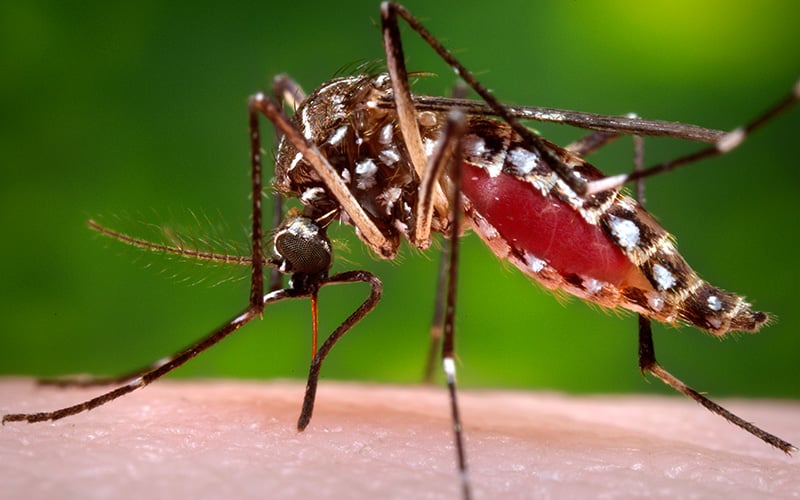- Slug: Olympics-Zika Risks,650
- Photo available (thumbnail, caption below)
Editors: This story was produced by the Cronkite News team of 25 reporters and three editors who are in Rio de Janeiro to bring you coverage of the 2016 Summer Olympics. To see all of our coverage, visit our Olympics page.
By TYLER FINGERT
Cronkite News
As the eyes of the world descend upon Brazil, Valley resident Marla Dorman is ready to cheer on Team USA, hoping the experience outweighs the risk of Zika.
“It’s kind of like this all around the world now; you just can’t lock yourself inside,” she said.
Zika has been making headlines around the world, but the mosquito-spread disease has hit Brazil particularly hard. Some have decided against traveling to Rio de Janeiro because of the potential medical issues related to the virus. The biggest concern is the possibility of microcephaly, a serious birth defect. NBC’s Savannah Guthrie, who is pregnant, and Team USA cyclist Tejay van Garderen are not making the trip, citing the disease.
Dorman is not just a typical fan of Team USA. She is the mother of Sam Dorman, a U.S. diver who is making his Olympic debut in Rio, competing in the men’s synchronized 3-meter springboard.
Sam said he is more focused on preparing for his shot at gold than the possibility of contracting Zika.
“We leave it to our staff and our trainers,” he said. “They take care of that and they handle all of those things. When they handle that it can allow us to focus on training and focus on what we’re doing.”
While athletes, coaches and fans gather for the first Olympics in South America, health officials around the world continue to monitor the situation in Brazil. Arizona officials warn that the potential issues with Zika do not end when people leave Brazil.
Jessica Rigler, branch chief for public health preparedness at the Arizona Department of Health Services, said once travelers return to Arizona they need to continue to be vigilant to make sure they do not accidentally spread the disease to mosquitos in the state.
“We are concerned here in Arizona about people returning from Zika-affected areas,” she said. “People really need to come back and protect themselves from mosquito bites for at least three weeks after they return so they are not infecting our Arizona mosquitos.”
Arizona health officials also warn that even if no symptoms are present when a person returns from an affected country, it’s important to continue the use of mosquito repellents to prevent accidental spread of the disease in the state.
According to the Arizona Department of Health Services, at least 10 Arizonans have been infected with Zika since the beginning of this year while traveling overseas. Of them, at least eight are from Maricopa County and at least two are from Pima County.
However, the large number of travelers heading to Brazil for the Olympics is not expected to help spread Zika in Arizona.
The number of people heading to Brazil for the Olympic Games represents “a very small fraction,” about a quarter of a percent, of the people who traveled to Zika-affected countries in 2015, according to the Centers for Disease Control and Prevention.
Weather will play a factor too. According to the World Health Organization, the spread of the Zika virus is not expected to be widespread during the Olympic Games because August is Brazil’s winter. In the colder weather there are expected to be fewer mosquitoes, thus reducing the likelihood of a visitor being bitten.
However, while the WHO says the chance of getting infected with Zika will be lower during the Olympic Games than during the summer in Brazil, they still recommend people take appropriate precautions by protecting themselves from a mosquito bite.
The CDC recommends travelers wear long-sleeved shirts and long pants, stay in places with air conditioning and window and door screens to keep mosquitoes outside, use Environmental Protection Agency-registered insect repellents, and stay away from mosquito breeding sites, like containers with standing water.
WHO health officials continue to warn that women who are pregnant should avoid traveling to affected areas because of the potential for birth defects.
-Cronkite News reporter Allison Gargaro contributed to this report.
^__=
The number of people heading to Brazil for the Olympics represents “a very small fraction,” about a quarter of a percent, of the people who traveled to Zika-affected countries in 2015 (Photo courtesy Centers for Disease Control and Prevention)
